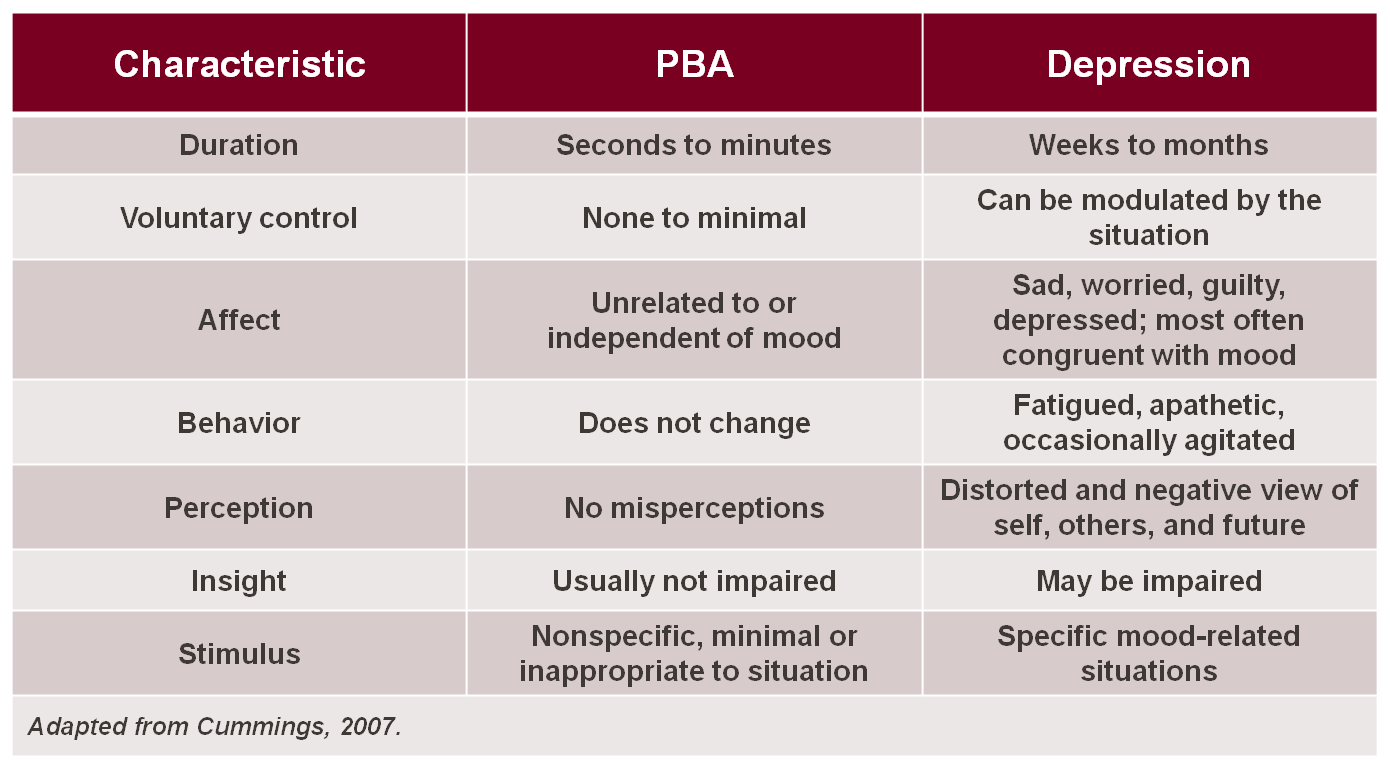|
Pseudobulbar Affect
Pseudobulbar affect (PBA), or emotional incontinence, is a type of emotional disturbance characterized by uncontrollable episodes of crying, laughing, anger or other emotional displays. PBA occurs secondary to a neurologic disorder or brain injury. Patients may find themselves crying uncontrollably at something that is only moderately sad, being unable to stop themselves for several minutes. Episodes may also be mood-incongruent: a patient may laugh uncontrollably when angry or frustrated, for example. Sometimes, the episodes may switch between emotional states, resulting in the patient crying uncontrollably before dissolving into fits of laughter. The pseudobulbar affect, also referred to as emotional lability, should not be confused with labile mood or labile emotions that stem from emotional instability – affective dysregulation – commonly seen in mental illnesses and certain personality disorders. Signs and symptoms The cardinal feature of the disorder is a pathological ... [...More Info...] [...Related Items...] OR: [Wikipedia] [Google] [Baidu] |
Psychiatry
Psychiatry is the medical specialty devoted to the diagnosis, prevention, and treatment of mental disorders. These include various maladaptations related to mood, behaviour, cognition, and perceptions. See glossary of psychiatry. Initial psychiatric assessment of a person typically begins with a case history and mental status examination. Physical examinations and psychological tests may be conducted. On occasion, neuroimaging or other neurophysiological techniques are used. Mental disorders are often diagnosed in accordance with clinical concepts listed in diagnostic manuals such as the ''International Classification of Diseases'' (ICD), edited and used by the World Health Organization (WHO) and the widely used '' Diagnostic and Statistical Manual of Mental Disorders'' (DSM), published by the American Psychiatric Association (APA). The fifth edition of the DSM (DSM-5) was published in May 2013 which re-organized the larger categories of various diseases and expanded upon the p ... [...More Info...] [...Related Items...] OR: [Wikipedia] [Google] [Baidu] |

